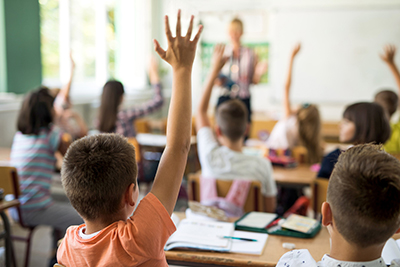INTERNET school, thus far, has been one of the more tedious educational journeys I’ve navigated and though the pandemic is still a dangerous one, I understand why decisions are being made to gradually reopen schools.
During a conversation with a colleague, I explained to her that even while I was studying in Trinidad, not sure where solid meals would come from, I did not feel as overwhelmed and plainly frustrated as I do nowadays. I was able to attend my classes, get the attention I need to understand concepts and problems in my tutorials, and stay in the library at all weird hours (until they made me go home at 06:00hrs). My workload has increased significantly and since I am a visual learner, it means that I have to take the extra time to read my textbooks and make notes more than I usually would.
 There are inherent challenges in an online school system which make it all the more frustrating. On Monday night, for example, after I got home from work, I decided I would stay awake for most of the night to work on my assignments. There was a power outage in my area then, so I opted to sleep early with the intention of getting up early to work on them. And so I slept, and I woke up ready to do my assignments, and poof, another power outage. When the power goes, my internet connection, which already isn’t the strongest for video lectures, goes as well.
There are inherent challenges in an online school system which make it all the more frustrating. On Monday night, for example, after I got home from work, I decided I would stay awake for most of the night to work on my assignments. There was a power outage in my area then, so I opted to sleep early with the intention of getting up early to work on them. And so I slept, and I woke up ready to do my assignments, and poof, another power outage. When the power goes, my internet connection, which already isn’t the strongest for video lectures, goes as well.
For further context, my semester began in September, which means that I am at the height of my mid-term assessment period, which continues right into the final examinations period in about four weeks. Any disruption, therefore, frustrates me and sets my schedule back. And there is little I can do to control that.
Now, I consider myself to be privileged when I talk about education. I am part of a very small segment of Guyana’s population able to pursue tertiary education, and more so, tertiary education at an institution abroad. I have a laptop, a tablet, and a mobile phone — each capable of assisting me with my virtual learning. I have not lost my job because of the pandemic. So, in many ways, I am privileged and I am grateful for that.
Being privileged does not preclude me from the frustrations of internet school, though. And clearly, it hasn’t. Being privileged, however, makes me woefully aware of the stark technological disparities in Guyana — for myself, yes, but more importantly, for those who are not as privileged as I am.
I think about the teacher in Lethem who messages me on WhatsApp to tell me about the challenges she has been encountering daily. With the students spread across fairly distant communities, without stable (if any) internet connections, she printed worksheets and circulated them among her students. For those who did have some amount of internet connectivity– largely data plans on their phones — she would engage them in a WhatsApp group chat because limited data plans are not conducive for Zoom classes. Teaching for her has been asynchronous and reliant on students’ discipline as well.
I think about my mother and 10-year-old sister; my mother receives my sister’s work via WhatsApp and has to work along with my sister to get it done, and afterwards check it for mistakes when the class teacher sends answers. Static communication does not allow my sister to ask questions or seek clarifications readily. And for me, that’s not real learning.
The Ministry of Education began printing worksheets and distributing them to students, so that even if they don’t have internet access, at least they have these worksheets to work on. My sister received a set of worksheets and that was a move I appreciated. The ministry has also been using broadcast media to assist. Beyond that, schools for the students set to write examinations next year with the Caribbean Examinations Council (CXC), and those who require facilities for technical learning will be returning to schools tomorrow November 9.
Does that mean that schools are 100 percent ready to reopen? Even with the best sanitisation and preparation, I don’t think so. There are still so many ways the coronavirus can be spread, such as while students are travelling to school for example. Yet, what is the better, more feasible solution to allow students sitting these examinations to adequately prepare? I don’t know, honestly.
At the press conference announcing that schools for these students would reopen on November 9, Minister of Education Priya Manickchand said, “We remain sure, however, that nothing we do will match the effectiveness or the value of a teacher in front of a classroom in face-to-face engagements.”
I don’t like the idea of students heading back to school, for safety reasons, but I can’t help but agree with her. If my university reopened, I would try to get back there as soon as possible, too.
If you would like to discuss this column or any of my previous writings, please feel free to contact me via email: vish14ragobeer@gmail.com



.jpg)








